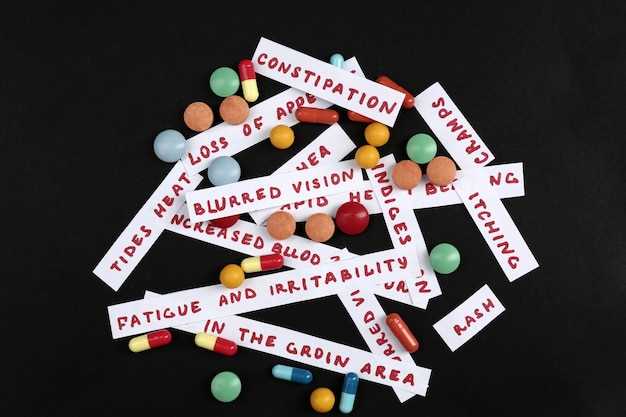
Important notice for patients taking atorvastatin:
Attention! Your health matters to us. We regret to inform you that there has been a drug recall for atorvastatin due to safety concerns. It has come to our attention that there may be a potential risk associated with this medication.
Please be assured that your well-being is our top priority and we are taking immediate action to ensure your safety. We advise you to contact your healthcare provider as soon as possible to discuss alternative treatment options.
We understand that this news may cause concerns, but rest assured that we are committed to resolving this issue promptly and transparently. We are dedicated to providing you with the highest standard of care and will keep you informed about any updates regarding the situation.
If you have any questions or need further assistance, please do not hesitate to reach out to our customer support team. Your health and satisfaction are of utmost importance to us.
Thank you for your understanding and cooperation during this recall period. We apologize for any inconvenience caused and appreciate your trust in us as your healthcare provider.
Mandatory drug recall

In this section, we will discuss the reasons and consequences of the mandatory drug recall for atorvastatin.
Atorvastatin, a commonly prescribed medication for lowering cholesterol levels, has been recalled due to safety concerns. This recall has been mandated by regulatory authorities after identifying potential risks associated with the use of this drug.
| Reasons | Consequences |
| The main reason for the recall is the discovery of manufacturing defects that could affect the efficacy and safety of the drug. | The consequences of continuing the use of atorvastatin could include serious adverse effects on patients, such as increased risk of heart attacks or other cardiovascular events. Therefore, the recall aims to prevent potential harm to patients. |
| Additionally, the recall is a precautionary measure to address quality control issues in the manufacturing process. | By recalling the medication, regulatory authorities intend to ensure that patients are not exposed to substandard or defective drugs that may compromise their health. |
It is crucial for healthcare professionals and patients to be aware of the mandatory drug recall for atorvastatin. By doing so, they can take necessary steps to discontinue the use of the affected medication and seek alternative treatments. Patients are advised to consult their healthcare providers for guidance on switching to a different cholesterol-lowering medication.
Furthermore, healthcare professionals should educate their patients about the recall, its reasons, and potential consequences. They should emphasize the importance of adhering to the recall and provide information on any necessary follow-up actions or medical evaluations.
Overall, the mandatory drug recall for atorvastatin aims to prioritize patient safety by addressing manufacturing defects and ensuring the availability of safe and effective medications for cholesterol management.
Reasons and consequences
When a drug recall for atorvastatin occurs, it is important to understand the reasons behind it and the potential consequences that may arise. Drug recalls are usually initiated when a medication is found to be defective or potentially harmful to patients.
There can be several reasons for a mandatory drug recall of atorvastatin. These reasons may include manufacturing defects, labeling errors, contamination, or the discovery of new safety concerns. Regardless of the specific reason, the consequences can be severe for both patients and healthcare professionals.
- Patients who have been taking atorvastatin may be at risk of experiencing adverse effects or worsening of their medical condition.
- Healthcare professionals may face challenges in providing alternative medications or treatment options for their patients.
- The reputation of the pharmaceutical company manufacturing atorvastatin may be negatively impacted, leading to potential legal actions and compensation claims.
It is crucial for patients and healthcare professionals to be aware of the recall and its potential consequences. By following the procedures and guidelines provided by regulatory authorities and healthcare organizations, they can ensure the safety and well-being of patients. Additionally, preventive measures should be implemented to avoid similar incidents in the future, such as stricter quality control and regular monitoring of medication safety.
Overall, understanding the reasons and consequences of a drug recall for atorvastatin is essential for promoting patient safety, ensuring appropriate healthcare practices, and preventing future incidents. By staying informed and taking necessary precautions, we can help protect the health and well-being of individuals receiving healthcare treatments.
Procedures and guidelines
When a drug recall occurs for atorvastatin, there are specific procedures and guidelines that need to be followed by both healthcare professionals and patients.
For healthcare professionals:
- Immediately stop prescribing and administering the recalled medication to patients.
- Notify all patients who have been prescribed atorvastatin about the recall and advise them to discontinue use.
- Check stock levels and remove any remaining units of the recalled drug from shelves or storage areas.
- Keep a record of all patients who have received the recalled medication, including their contact information, dosage, and duration of use.
- Report the recall to the appropriate regulatory bodies and follow their instructions for further actions.
- Stay updated on any developments or additional information regarding the recall to provide accurate and timely information to patients.
For patients:
- Discontinue use of atorvastatin immediately and follow the instructions of your healthcare provider.
- If you experience any adverse effects or concerns related to the medication, contact your healthcare provider for further guidance.
- Return any unused or partially used medication to the pharmacy where you obtained it.
- Follow any additional instructions or recommendations provided by the healthcare professional.
By following these procedures and guidelines, both healthcare professionals and patients can ensure the safe handling and retrieval of the recalled medication, minimizing any potential harm or risks associated with its use.
Impact on patients and healthcare professionals
One of the main concerns regarding the drug recall for atorvastatin is the impact it has on patients and healthcare professionals. Patients who have been taking atorvastatin may experience a disruption in their treatment plan, as they will no longer have access to the medication. This can be particularly concerning for patients who rely on atorvastatin to manage their cholesterol levels and reduce their risk of cardiovascular disease.
Healthcare professionals may also face challenges as a result of the drug recall. They will need to inform their patients about the recall and work with them to find an alternative treatment option. This may require additional time and resources to ensure that patients have the necessary information and support during the transition.
Furthermore, healthcare professionals may also face legal implications and potential liability if they continued to prescribe atorvastatin to their patients after the recall was announced. It is essential for healthcare professionals to stay updated on drug recalls and take immediate action to protect the well-being of their patients.
The impact of the drug recall extends beyond the immediate concerns for patients and healthcare professionals. There may also be financial repercussions for individuals who have suffered harm as a result of taking atorvastatin. They may be eligible for compensation and legal actions against the manufacturer of the drug.
Overall, the drug recall for atorvastatin has a significant impact on patients and healthcare professionals, both in terms of their treatment plans and potential legal implications. It is crucial for all stakeholders to be aware of the recall and take appropriate measures to ensure the well-being and safety of patients.
Compensation and legal actions
As a result of the mandatory drug recall for atorvastatin, patients and healthcare professionals who have been affected by this recall may be eligible for compensation. The recall was issued due to concerns about the safety and quality of the medication, and those who have suffered harm as a result of using the recalled drug may be entitled to financial compensation.
Legal recourse
If you or a loved one has experienced any adverse effects or complications from using atorvastatin, it is important to consult with a legal professional to understand your rights and explore potential legal actions. A skilled attorney specializing in drug recalls and medical malpractice can provide guidance and support in pursuing compensation for your damages.
Medical expenses and lost wages

Compensation may cover medical expenses related to the treatment of any adverse effects or complications caused by atorvastatin. This includes hospital bills, doctor’s visits, prescription medications, and any necessary ongoing medical care. Additionally, if the recall has resulted in a loss of income due to missed work or disability, compensation may be awarded to cover those lost wages as well.
| Types of compensation | Examples |
|---|---|
| Medical expenses | Hospital bills, doctor’s visits, prescription medications |
| Lost wages | Compensation for missed work or disability |
| Pain and suffering | Emotional and physical distress caused by the recalled drug |
It’s important to keep all relevant medical records, receipts, and documentation of expenses related to the recall, as these will be crucial in pursuing legal compensation.
Remember, if you have been affected by the atorvastatin recall, you have legal rights and options to seek compensation for your damages. Consult with a qualified attorney who can help guide you through the legal process and fight for the compensation you deserve.
Preventive measures and future considerations
When it comes to drug recalls, it is important to take preventive measures to ensure the safety of patients and minimize the chances of such incidents happening in the future. Here are some recommendations to consider:
Educate healthcare professionals
Healthcare professionals play a vital role in ensuring patient safety. It is essential to provide them with updated information and guidelines on drug recalls, including clear instructions on how to identify and handle recalled medications. Conducting regular training sessions and workshops can help keep healthcare professionals informed about the latest developments in drug safety.
Enhance quality control measures
Manufacturers should prioritize quality control measures to prevent the production and distribution of defective drugs. Stringent quality checks throughout the manufacturing process should be implemented, including thorough testing and inspection of raw materials, equipment, and finished products. Regular audits and assessments can help identify any potential issues and take corrective actions promptly.
Implement stricter regulatory policies
Regulatory bodies should enforce stricter policies and regulations to ensure the safety and efficacy of drugs. This includes conducting thorough inspections of manufacturing facilities, reviewing documentation and records, and imposing heavy penalties for non-compliance. Collaborating with international regulatory agencies can also help share information and best practices to improve drug safety globally.
- Encourage transparency and communication
Transparency and open communication between regulatory bodies, manufacturers, healthcare professionals, and patients are crucial in preventing drug recalls. Manufacturers should promptly communicate any issues or concerns regarding their products to regulatory authorities and healthcare professionals. Patients should also be educated on the importance of reporting any adverse effects or suspected quality issues they may experience.
- Monitor adverse events
Regular monitoring of adverse events and post-marketing surveillance can help identify any potential risks or issues associated with drugs. This includes collecting and analyzing data on reported adverse effects, conducting epidemiological studies, and taking appropriate actions if any patterns or trends are identified. Collaboration between regulatory bodies, healthcare professionals, and manufacturers is essential to ensure timely and effective monitoring.
By implementing these preventive measures and diligently considering future considerations, we can work towards a safer pharmaceutical industry and protect the health and well-being of patients.
